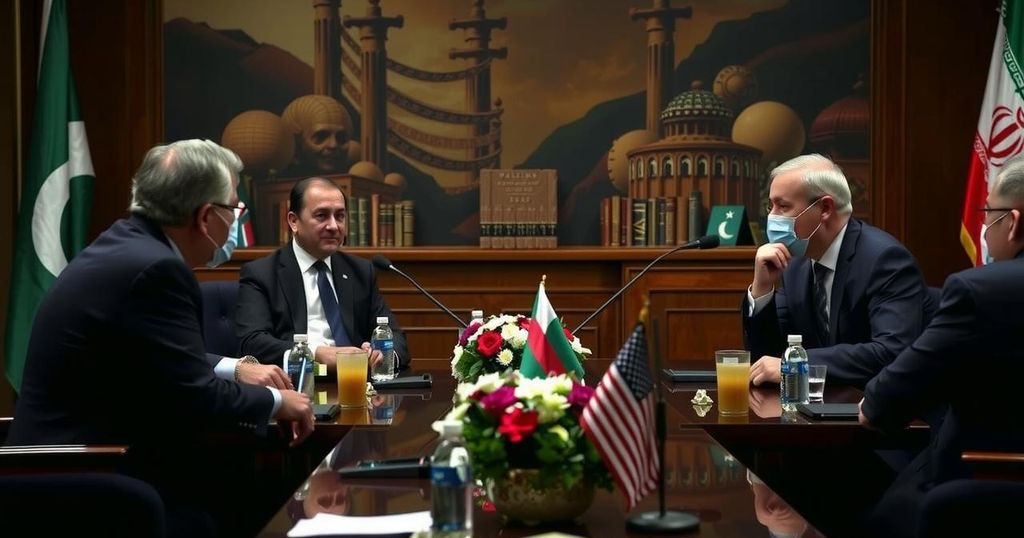Iran’s Foreign Minister Visits Pakistan to Enhance Bilateral Relations Amid Regional Tensions

Iran’s foreign minister, Abbas Araghchi, is visiting Pakistan for two days to discuss Middle Eastern tensions and strengthen bilateral relations. His arrival comes amid escalated threats between Iran and Israel following recent military strikes. The discussions are expected to cover trade, energy, security, and a stalled gas pipeline project critical for Pakistan’s energy needs.
Iran’s foreign minister, Abbas Araghchi, commenced a significant two-day official visit to Pakistan’s capital, Islamabad, with the aim of addressing various regional concerns, particularly the rising tensions in the Middle East, while also seeking to enhance bilateral relations with Pakistan. Upon his arrival, Araghchi was ceremoniously welcomed by Pakistani officials shortly after midnight. During this visit, he is scheduled to engage in discussions with key Pakistani leaders, including Prime Minister Shehbaz Sharif and Deputy Prime Minister Ishaq Dar, at the Foreign Ministry. This diplomatic engagement arrives amidst heightened hostilities between Iran and Israel, following an incident on October 26, when Israeli forces executed strikes targeting Iranian military installations, resulting in fatalities. In response to these acts, Pakistan has openly condemned Israel’s military actions. Furthermore, the Pakistani Foreign Ministry emphasized the visit’s potential to strengthen cooperation and dialogue on numerous critical issues such as trade, energy, and security. Additionally, the Iranian government is keen on revitalizing a multi-billion dollar gas pipeline initiative, which has been stagnant since its inception in 2013. This project is designed to facilitate the transmission of Iranian natural gas to Pakistan, an initiative that has faced significant hurdles due to opposition from the United States, which perceives it as a breach of sanctions imposed on Iran over its nuclear ambitions. The completion of this pipeline could substantially contribute to addressing Pakistan’s energy shortages, thus representing a vital aspect of their bilateral discussions.
The context of the Iranian foreign minister’s visit to Pakistan is rooted in ongoing geopolitical tensions within the Middle East, particularly the adversarial relationship between Iran and Israel. Iran’s recent threats of retaliation following Israeli airstrikes have heightened concerns in the region. Furthermore, Iran’s efforts to enhance economic ties, specifically through the proposed gas pipeline, underlines the pressing energy needs of Pakistan, highlighting the intersection of diplomatic relations and economic collaboration.
In conclusion, Abbas Araghchi’s visit to Pakistan symbolizes a crucial opportunity for both countries to address escalating tensions in the Middle East while simultaneously advancing their bilateral relationship. The discussions surrounding the long-delayed gas pipeline project are particularly significant for Pakistan’s energy security. Strengthening institutional ties could yield mutual benefits for both nations in the face of regional challenges.
Original Source: abcnews.go.com








